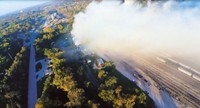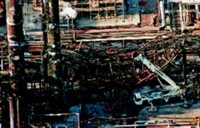Advertisement
Grab your lab coat. Let's get started
Welcome!
Welcome!
Create an account below to get 6 C&EN articles per month, receive newsletters and more - all free.
It seems this is your first time logging in online. Please enter the following information to continue.
As an ACS member you automatically get access to this site. All we need is few more details to create your reading experience.
Not you? Sign in with a different account.
Not you? Sign in with a different account.
ERROR 1
ERROR 1
ERROR 2
ERROR 2
ERROR 2
ERROR 2
ERROR 2
Password and Confirm password must match.
If you have an ACS member number, please enter it here so we can link this account to your membership. (optional)
ERROR 2
ACS values your privacy. By submitting your information, you are gaining access to C&EN and subscribing to our weekly newsletter. We use the information you provide to make your reading experience better, and we will never sell your data to third party members.
Safety
Safer Chlorine Transfer
Chemical safety board urges use of remotely operated equipment
by Jeff Johnson
June 20, 2007
Emergency protective equipment at facilities that unload chlorine from railroad tankers is inadequate and should be changed, says the Chemical Safety & Hazard Investigation Board (CSB) in a recent safety bulletin.
On the basis of its investigations, CSB also recommends that the Department of Transportation expand its regulatory coverage to facilities that unload chlorine railcars and require the facilities to install remotely operated emergency isolation devices to quickly shut down the flow of chlorine if a hose ruptures or another failure of unloading equipment occurs.
The board notes that rail tank cars are equipped with internal valves that stop flow when an accident occurs during transit, but these systems are not designed to stop leaks during unloading. A failure of a transfer railcar hose may not activate these emergency valves, the board says.
A CSB investigation of a 2002 accident at DPC Enterprises in Festus, Mo., for instance, found that when a transfer hose ruptured, the emergency shutdown valve also failed. As a result, emergency responders were forced to walk through a 4-foot deep fog of chlorine vapor to manually close a shutdown valve on top of the railcar. Some 68 residents sought medical aid; 48,000 lb of chlorine was released.
The board notes that a survey of bulk chlorine users found that 30% of them relied solely on transit-based emergency valves without remote shutoffs to stop chlorine flow when a hose ruptures. The bulletin is available at www.csb.gov.




Join the conversation
Contact the reporter
Submit a Letter to the Editor for publication
Engage with us on Twitter